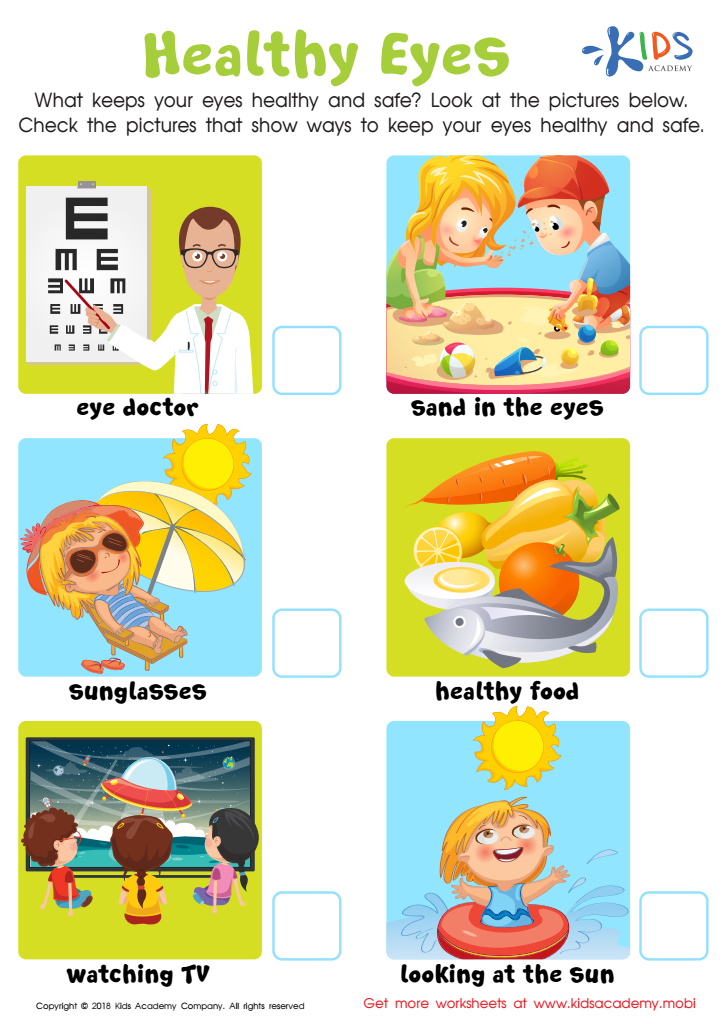Normal Life Science Worksheets for Ages 3-5
3 filtered results
-
From - To
Discover our engaging Life Science worksheets designed for kids ages 3-5, perfect for introducing little learners to the wonders of the natural world! Our fun and interactive activities cover essential topics such as plants, animals, and ecosystems, fostering curiosity and a love for science. Each worksheet is tailored to enhance cognitive skills while promoting hands-on learning. With colorful illustrations and age-appropriate content, these resources are ideal for home and classroom use. Encourage young explorers to observe, ask questions, and make discoveries about life around them. Access a variety of printable worksheets now and inspire a lifelong passion for science!


Healthy Eyes Worksheet


Herbivores Printable


Carnivores Worksheet
Parents and teachers should care about Normal Life Science for ages 3-5 because it lays the foundation for young children's understanding of the world around them. At this stage, children exhibit natural curiosity about living things, their habitats, and interactions within the environment. Engaging in life sciences helps nurture this curiosity, promoting critical thinking and observational skills.
Furthermore, introducing life science concepts fosters an appreciation for nature, encouraging children to develop a sense of responsibility towards the environment. This early exposure can be pivotal in cultivating future eco-conscious individuals who value biodiversity and sustainability.
Life science inquiry encourages hands-on exploration through activities like examining plants, observing insects, and understanding basic life cycles, thereby enhancing fine motor skills and cognitive development. Additionally, these experiences support language development by providing a rich vocabulary relating to living things, health, and the ecosystem.
Finally, by integrating life science into early learning, educators and parents can help children learn to ask questions, think independently, and develop a lifelong love for science, paving the way for academic success in later years. Thus, engaging with Normal Life Science is essential not only for educational growth but also for nurturing responsible and informed future citizens.

 Assign to My Students
Assign to My Students




















